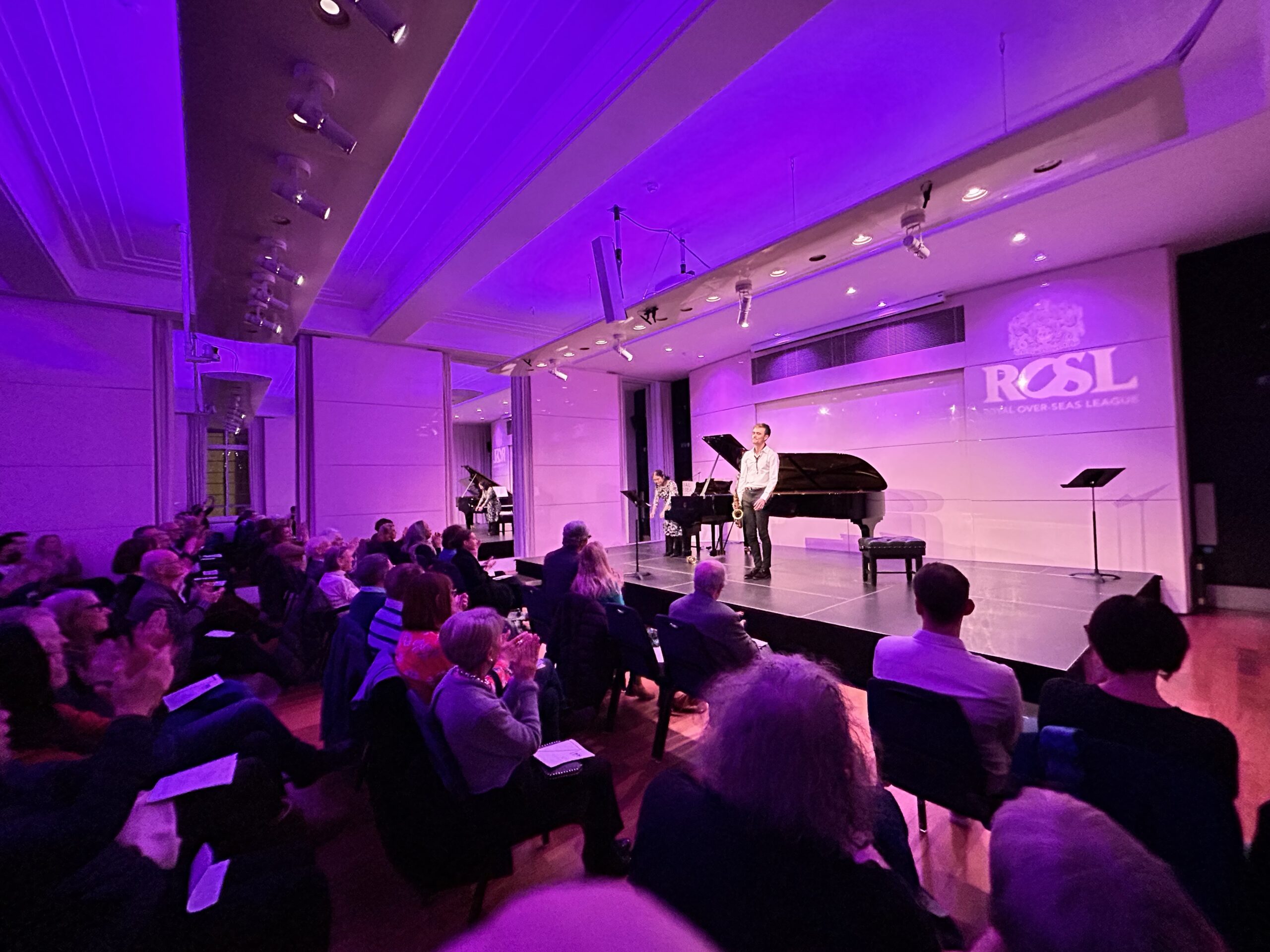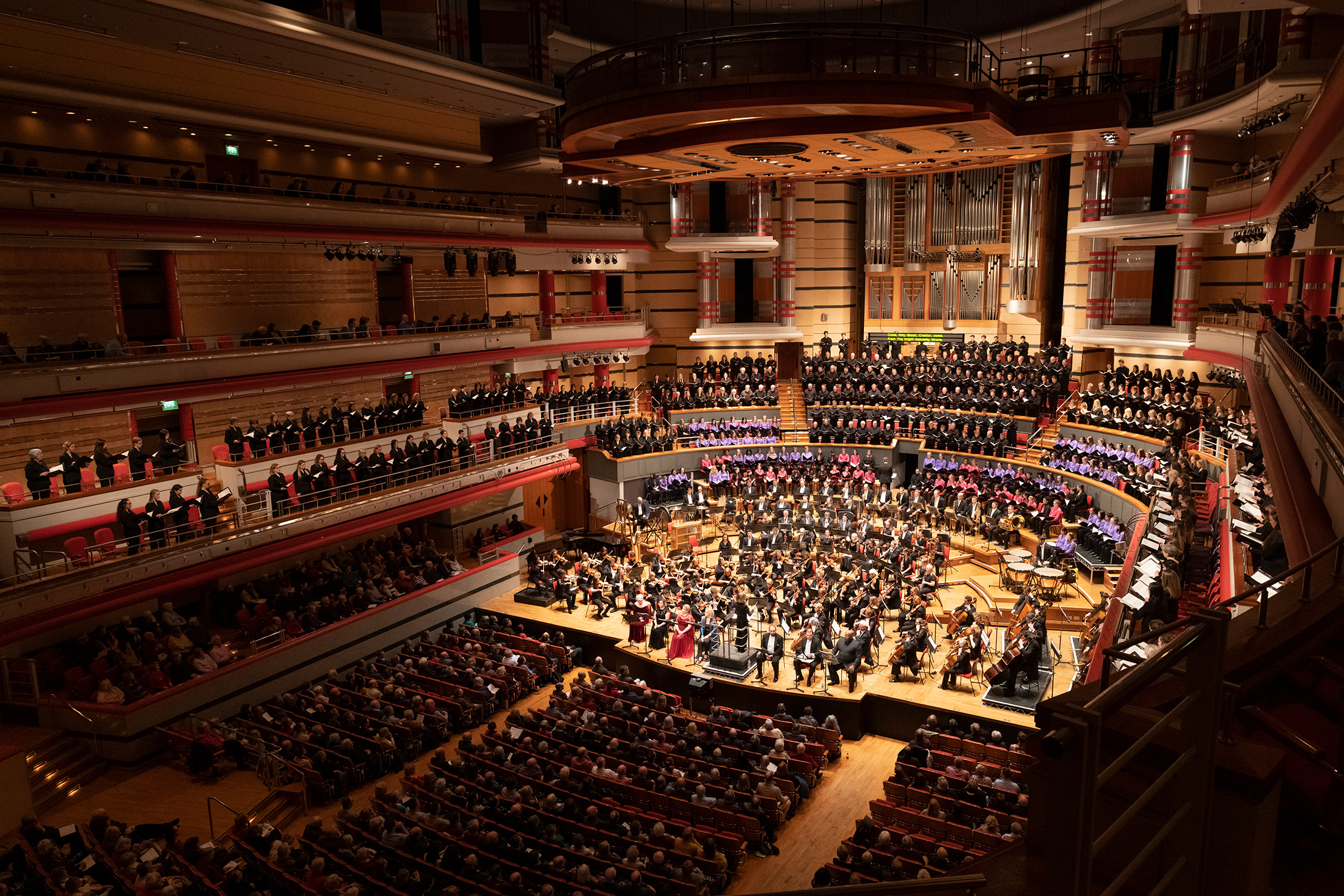The Royal Over-Seas League Music Competition is underway. Tuesday evenings for the next few weeks are given over to trips to the Mayfair members club to see the next crop of performing talent pit themselves (gently) against one another in pursuit of the Gold Medal and £20K cash.
Competitions have their critics. There’s an inherent contradiction in the idea that we can or should compare individual acts of musical expressions when such judgments are themselves subjective. Some others also see competitions putting young performers under undue pressure.
But they’re also performance platforms – an opportunity for developing musicians to gain valuable experience playing to an audience, expand their portfolio of repertoire, and develop their stamina. Like other competitions, ROSL actively pitches the competition as a friendly endeavour, supporting participants throughout and beyond with performance opportunities and mentoring. This friendly spirit is reflected in the audience vibe at the near-capacity Princess Alexandra hall at ROSL HQ, no doubt boosted by the heartfelt welcome every audience member receives from staff as they step into the auditorium. Textbook living by your values.
Competition addicts like me also see competitions like ROSL as a way of honing our critical listening. Comparing and contrasting how sound from an instrument is produced satisfies the curious mind. They’re live music experiences that reveal more about the craft of music-making in a similar way to masterclasses, highlighting the considerable commitment any musician regardless of genre or discipline has to make, underlining the overlooked point that musicianship is a constant work in progress.
Friendly and supportive yes, but ROSL is also rightly challenging. Each of the four finalists have 25 minutes of performance time in which they need to play a range of music – tonight from classical to contemporary – demonstrating how they respond musically to different styles. Therein lies the biggest challenge, I think, selecting a range of music that can demonstrate versatility in playing performed in a short space of time during which a significant percentage is given over to getting accustomed to a new acoustic. Finalists will have already performed in Princess Alexander Hall but only to the selection panel. The final sees the audience join the fray, and en masse, we have a tendency to put players on edge, at least at first.
This adjustment period was reflected in all of the performers during the wind and brass final last night. A good 6 or 7 minutes were needed for each competitor to get a handle on how they needed to adapt their playing to accommodate the changed acoustic. Euphonium player James Blackford undoubtedly had the biggest acoustic challenge of all, with the bell of his instrument pointing to the ceiling meaning some of the intricate detail in the Hummel Fantasy was lost. He In flautist Meera Maharak’s case this was evident in a different power behind the lower and middle notes she was playing – these came through more strongly than say when the upper notes sounded at the beginning. By the time she started playing the second piece on the programme, Barber’s Canzone, it was clear that she was accustomed to the environment. This was the most self-assured, Meera adopting an impressively strong posture meaning the air was supported well by her diaphragm. A ravishingly dark sultry tone at the end of the piece.
Clarinettist Emile Souvagie’s sound really shone from the second movement of the Brahms second clarinet sonata, developing into a deliciously warm rounded tone. There was a sense of solidity too devoid of tension that tense clarinettists sometimes unwittingly create. What we heard was a clear enchanting melodic line. This might have been down to his considerable orchestral experience (there were a lot of credits for orchestral playing in his biography). His concluding work, Gershwin’s unapologetically fun and virtuosic 3 Preludes, was spirited, celebratory and joyous.
On balance, it was Souvagie’s performance I enjoyed most, although the performer who followed him saxophonist Lewis Banks was in my mind the ‘complete package’ – a self-assured performer the moment he stepped onto stage, with a programme of music he wholly inhabited. The material he played yielded a musical story too – lots of evocative images created by strange and unusual sounds. The first piece – Ryo Noda’s ‘Mai’ was inspired by a poem telling the story of a Samurai captain managing a crisis at sea where the choice is the life of his crew or himself. Here Banks introduced the work with the necessary charisma that avoids the worthiness or earnestness that sometimes exudes contemporary pieces.
My money was on Banks securing first place when I left the final after the four performances (I had to get home early ahead of an early start the next morning): technical mastery combined with magnetic charisma and an interesting programme. I’ll update this post when the press release announcing the Wind and Brass Final winner is received.
The ROSL Arts Annual Music Competition continues Tuesday 21 February.




